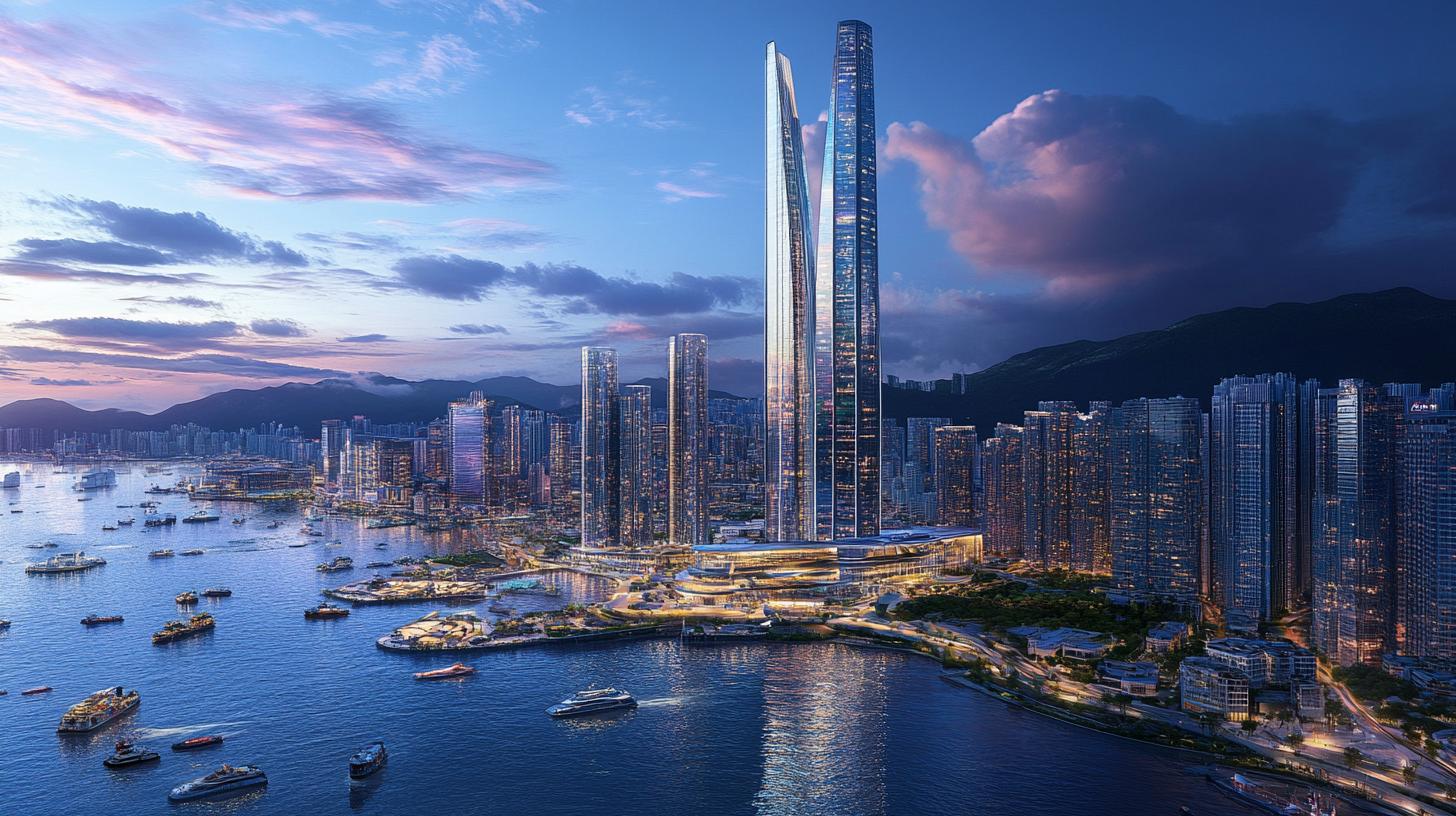In a bold leap towards sustainable energy, Hong Kong is positioning itself to be the first city globally to achieve full hydrogen-powered status. Spearheaded by successful hydrogen trials surpassing initial benchmarks, the metropolis stands at the forefront of the hydrogen energy transition, backed by robust government and business collaborations.
HK Electric’s Strategic Leap into Hydrogen Energy
HK Electric is leading the charge with innovative strategies that integrate hydrogen into its energy generation portfolio. They are breaking ground with cutting-edge, gas-fired generation units at Lamma Power Station, slated for a 2029 launch, purpose-built for eventual hydrogen conversion. With the introduction of their latest power plant, L12, in 2024 boasting an impressive efficiency of over 58%, this shift underscores a significant leap from coal, propelling the city closer to its decarbonization aspirations.
Collaborating with Mitsubishi, HK Electric is pioneering technological innovation at Japan’s Takasago Hydrogen Park, advancing the global hydrogen value chain. These strides place Hong Kong at the pinnacle of the energy transition landscape.
Government-Driven Hydrogen Trials: A Citywide Experimentation
Significant governmental backing has catalyzed multiple hydrogen trial projects across Hong Kong, with nine initiatives greenlit by March 2024. From electricity production to electric vehicle charging stations, these trials are paving paths across diverse economic sectors. Towngas, among the key pioneers, exemplifies the collective drive to integrate hydrogen on a mass scale, with projects underway in partnership with major construction and sports sectors.
Shaping a Hydrogen-Powered Future
Early hydrogen trials reveal promising efficiency and cleanliness, surpassing expectations and hinting at profound urban and transportation potentials. By 2035, as the fossil fuel era wanes, Hong Kong anticipates significant decarbonization achievements.
As global cities watch closely, Hong Kong may very well be drafting the blueprint for a hydrogen-fueled future. Their progressive approach offers a roadmap for global urban centers aspiring to combat climate change with decisive, sustainable energy solutions.
The Unforeseen Impacts of Hong Kong’s Hydrogen Revolution on Global Communities
In the race to adopt sustainable energy solutions, Hong Kong’s groundbreaking transition to hydrogen power is garnering significant attention. While the city’s ambitions are well-documented, the ripple effects of this initiative extend far beyond its borders, offering both opportunities and controversies with global implications.
Unlocking New Economic Frontiers
As Hong Kong sets its sights on a hydrogen-powered future, this shift promises to impact economies worldwide. The demand for hydrogen production technology and expertise could lead to a surge in international trade partnerships. Countries previously reliant on oil exports may find hydrogen as a lucrative alternative, potentially reshaping global economic dynamics. Established energy companies could pivot their focus toward hydrogen, driving innovation and job creation in new sectors.
A Double-Edged Sword for Developing Nations
Hong Kong’s example highlights a crucial consideration: will developing countries be able to afford and access this cutting-edge technology? The costs associated with transitioning to hydrogen, including infrastructure and research, could widen the gap between affluent and less economically developed nations. This disparity raises ethical questions. Should wealthier countries bear the responsibility for transferring hydrogen technology to their counterparts? How do we ensure equitable progress in the battle against climate change?
The Environmental Controversies Surrounding Hydrogen
While hydrogen is heralded as a clean energy source, the production processes vary in their environmental impact. “Green hydrogen,” generated through renewable energy, is much preferred. However, “blue” or “grey” hydrogen, derived from fossil fuels with varying degrees of carbon capture, may undermine decarbonization efforts. The debate over which production methods align with true sustainability remains intense.
How Will This Shift Influence Global Transportation Networks?
Hydrogen technology is not just about energy generation but also revolutionizing transportation. With hydrogen fuel cells offering a longer range and faster refueling than traditional electric vehicles, what does this mean for the automotive and public transport sectors? Will cities worldwide adopt hydrogen trains or buses, and how soon can we expect a shift in consumer vehicle preferences?
The Social Dimension: Public Acceptance and Lifestyle Changes
Public perception of hydrogen technology will play a crucial role in its adoption. Will communities embrace hydrogen as they did with electric vehicles, or will safety and practicality concerns slow acceptance? Education and transparency about hydrogen’s benefits and risks are key to overcoming any societal hesitations.
The Urban Blueprint for the Future
As Hong Kong pioneers this ambitious transformation, urban planners globally should consider how hydrogen technology could integrate into existing infrastructure. How can cities retrofit their transportation and energy systems to accommodate hydrogen fuel? Will historic city centers adapt to new energy demands, or will new smart cities emerge as hydrogen hubs?
Hong Kong’s embrace of hydrogen power is not just a local story— it’s a narrative with worldwide implications, poised to redefine energy paradigms across multiple sectors. As we watch this transition unfold, global communities have the opportunity to learn from Hong Kong’s strategies and challenges, crafting their own responses to an ever-evolving energy landscape.
For further information on sustainable energy innovations and developments, visit World Energy Council.









